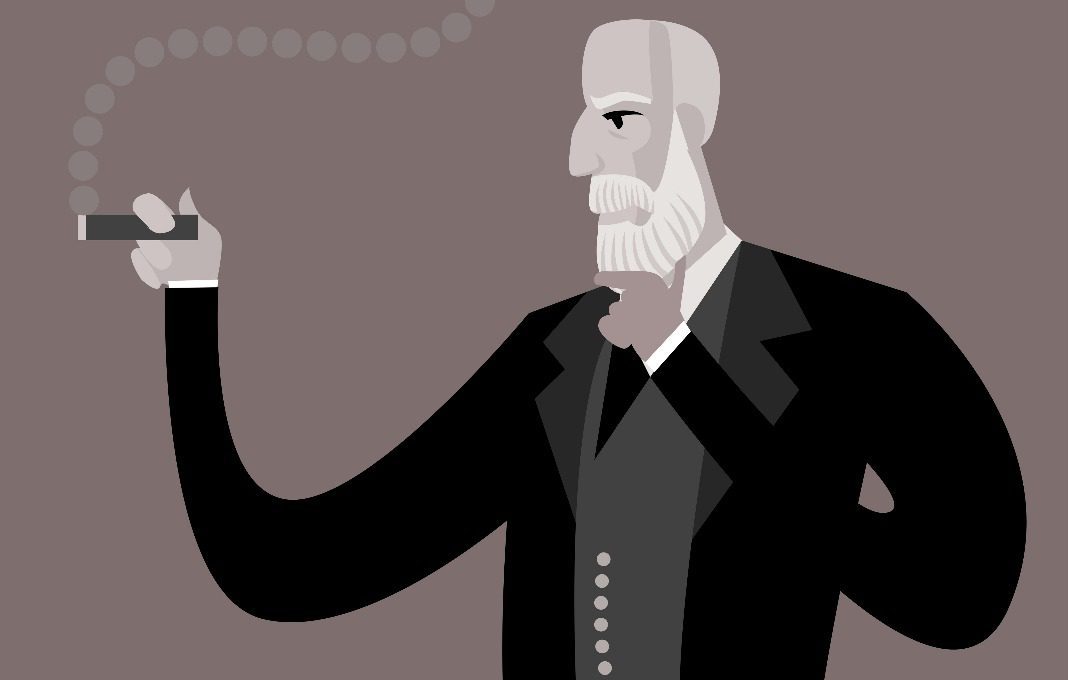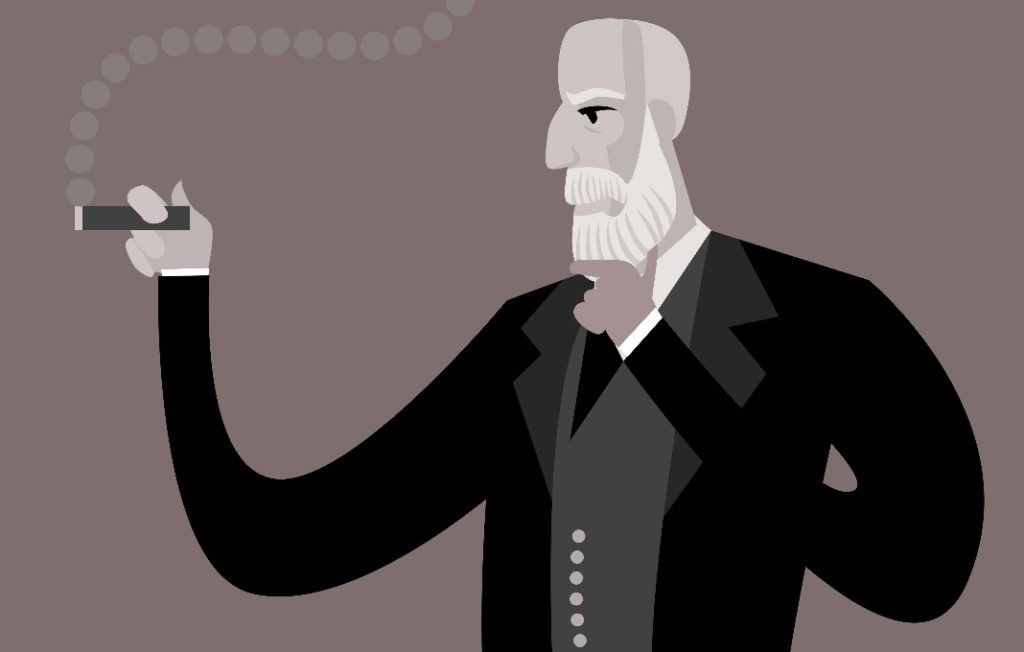Freud’s Answers For The Great Resignation


 Business leaders are constantly presented with warnings about new trends, often accompanied by prescribed actions that must be taken to avoid serious consequences. Some of these warnings are warranted, and some end up being nonsense. Most fall somewhere in between, which is where warnings about “The Great Resignation” probably fall.
Business leaders are constantly presented with warnings about new trends, often accompanied by prescribed actions that must be taken to avoid serious consequences. Some of these warnings are warranted, and some end up being nonsense. Most fall somewhere in between, which is where warnings about “The Great Resignation” probably fall.
To be sure, some industries have experienced record “quits,” as measured by the Bureau of Labor Statistics, likely caused by a confluence of the Covid pandemic, governmental policies, and general job dissatisfaction, among other factors. Other industries, however, have experienced less turnover, though they are still forced to deal with a compressed labor force. Regardless of what the Great Resignation ultimately becomes, it is, if anything, an opportunity to consider why people stay at organizations and why they might not. While the answers include economics, they also transcend money, with deep roots in human psychology.
It’s worth pausing to review why this matters. First, good people are almost never replaceable in the true sense of the term. Others can be hired to perform their specified job functions, but that is different from “replacing” them and the unique contributions they make.
Second, good people leaving an organization can be demoralizing to others. It can lead to others assuming they should leave and, in some cases, even losses of customers or clients.
Third, it is expensive to lose good people. In a 2019 Gallup article by Shane McFeely and Ben Wigert, the authors reviewed Bureau of Labor statistics and estimated that U.S. businesses were losing about a trillion dollars each year due to turnover, most of which was “self-inflicted.” And that was before the Great Resignation! They estimated that the cost of replacing an employee can range conservatively from 50% to 200% of the employee’s salary.
It should go without saying that employees must be paid fairly and receive good, livable benefits, which, these days, includes greater flexibility around commuting when possible. Employees will leave a company as soon as they get a chance if they cannot care for themselves and their families at their current place of work. After all, human nature leads most of us to seek out security instinctively. In today’s world, having enough money is as important as having a good spear or flint was to our forebears—and for similar reasons.
But people who have choices (not everyone does) do not stay at jobs solely for money. Again, we are complex creatures, and our nature compels most of us to seek something more. We need money, but we need more than money.
In the above Gallup article, the authors noted that 52% of surveyed employees who left an organization reported that the organization could have done something to keep them at their job. They also reported that 51% of surveyed employees who left their job stated that in the three months before their departure, no company leader talked to them about their future or job satisfaction.
Lieben und arbeiten. Sigmund Freud said that “love and work are the cornerstones of our humanness.” More to the point: “love and work, work and love … that’s all there is.” And that is the answer to our central question of why, assuming appropriate economics, people stay at an organization. Freud has been discredited in recent years for some of his views, but his thesis about love and work—lieben und arbeiten—offers great opportunity for leaders who are willing to consider it.
Freud would have approved of the song “Love Is the Answer” by Todd Rundgren (made famous by England Dan and John Ford). As in the song, Freud was not speaking exclusively of the narrow concept of romantic love. Rather, he was speaking of caring deeply for, and being cared for deeply by, others. We all yearn for this.
Freud postulated that “in the development of mankind as a whole, just as in individuals, love alone acts as the civilizing factor in the sense that it brings a change from egoism to altruism.” In other words, love in a broad sense is the key to transformational thinking that transcends ourselves.
In and out of the workplace, most people want to feel emotionally connected with others. One can call this connection “love” or “friendship,” but because those terms remain a taboo in some workplaces, terms like “social capital” are more common in that context because they sound more business-like.
People are more likely to stay at their jobs when they are deeply connected to others in the organization. In turn, those connections often strengthen over time, furthering the retentive effect. Sheryl Sandberg said that “motivation comes from working on things we care about. It also comes from working with people we care about.”
Just as Freud intended a broader meaning of the term “love” when describing the “cornerstones of our humanness,” he intended a broader meaning for the term “work” too. What he was referring to was purpose and contribution. Most of us need to feel that there is a purpose behind our lives and that we are contributing to the world.
For some, this sense of purpose and contribution can be found in our personal and familial relationships. For others, it can be found in our employment or volunteer work; and for most, it takes multiple forms.
Suffice it to say that people are more likely to stay at a job if they believe they are doing meaningful work in pursuit of a compelling mission, vision, and values consistent with their own mission, vision and values. In a 2021 McKinsey article by Naina Dhingra, Andrew Samo, Bill Schaninger, and Matt Schrimper, the authors argue:
People who live their purpose at work are more productive than people who don’t. They are also healthier, more resilient, and more likely to stay at the company. Moreover, when employees feel that their purpose is aligned with the organization’s purpose, the benefits expand to include stronger employee engagement, heightened loyalty, and a greater willingness to recommend the company to others.
Employees also want empowerment so that they can add their own unique contributions to the cause. A 2019 Forbes article by Shelcy Joseph noted that companies where “employees have influence” enjoy a 47% chance of an employee staying for at least three years relative to a 35% chance at companies that are “less empowering.”
Ironically, while money matters in retaining talent, the most important factors involve the opposite of financial gain. They involve deep caring for, and by, others as well as working for an inspirational, meaningful purpose.
Want to keep your workforce intact? Invest not only in good wages and benefits but also in opportunities to nurture strong interpersonal connections. Bring people together whenever possible, and, while remote work is probably here to stay, consider at least a hybrid approach so as not to lose the personal connections that are best formed and nourished in person.
Remember also the importance of compelling missions, visions and values to which employees can personally relate. Organizations that lack these will struggle to inspire team members to feel that their own work is meaningful and impactful.
At our company, we call these things, collectively, “meaning and joy.” Freud called them “love and work.” Either way, they are at least as important as money. For many, they are more important.

Chief Executive Group exists to improve the performance of U.S. CEOs, senior executives and public-company directors, helping you grow your companies, build your communities and strengthen society. Learn more at chiefexecutivegroup.com.
0

1:00 - 5:00 pm
Over 70% of Executives Surveyed Agree: Many Strategic Planning Efforts Lack Systematic Approach Tips for Enhancing Your Strategic Planning Process
Executives expressed frustration with their current strategic planning process. Issues include:
Steve Rutan and Denise Harrison have put together an afternoon workshop that will provide the tools you need to address these concerns. They have worked with hundreds of executives to develop a systematic approach that will enable your team to make better decisions during strategic planning. Steve and Denise will walk you through exercises for prioritizing your lists and steps that will reset and reinvigorate your process. This will be a hands-on workshop that will enable you to think about your business as you use the tools that are being presented. If you are ready for a Strategic Planning tune-up, select this workshop in your registration form. The additional fee of $695 will be added to your total.

2:00 - 5:00 pm
Female leaders face the same issues all leaders do, but they often face additional challenges too. In this peer session, we will facilitate a discussion of best practices and how to overcome common barriers to help women leaders be more effective within and outside their organizations.
Limited space available.

10:30 - 5:00 pm
General’s Retreat at Hermitage Golf Course
Sponsored by UBS
General’s Retreat, built in 1986 with architect Gary Roger Baird, has been voted the “Best Golf Course in Nashville” and is a “must play” when visiting the Nashville, Tennessee area. With the beautiful setting along the Cumberland River, golfers of all capabilities will thoroughly enjoy the golf, scenery and hospitality.
The golf outing fee includes transportation to and from the hotel, greens/cart fees, use of practice facilities, and boxed lunch. The bus will leave the hotel at 10:30 am for a noon shotgun start and return to the hotel after the cocktail reception following the completion of the round.